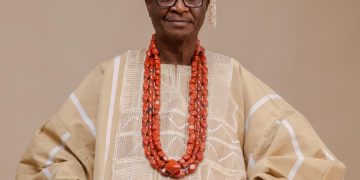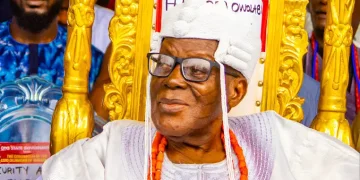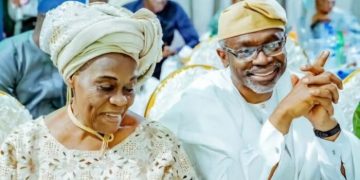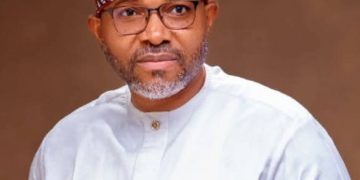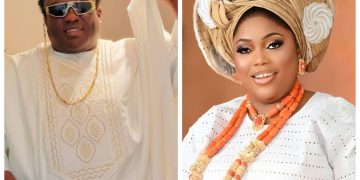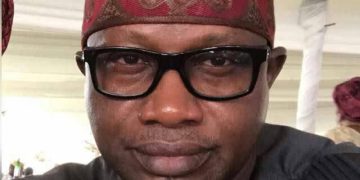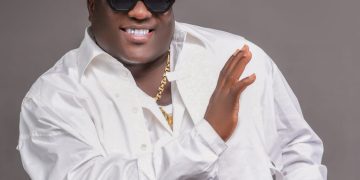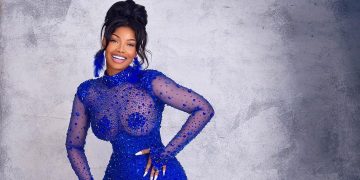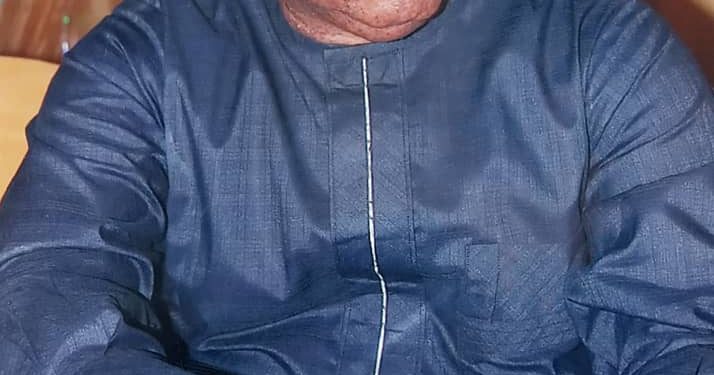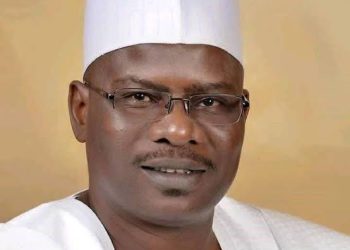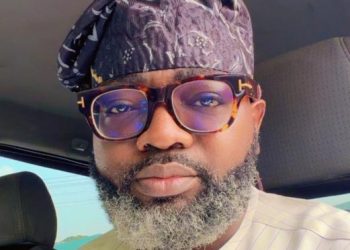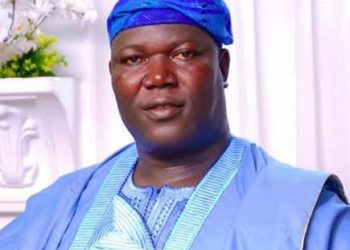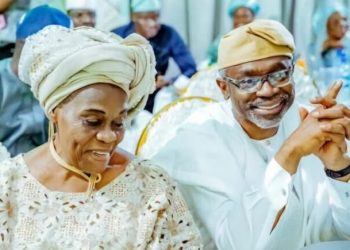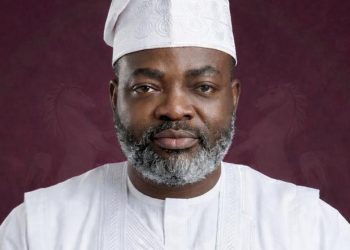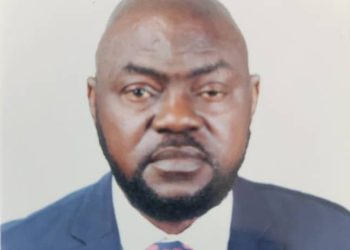By Wole Olujobi
It all started as one of the usual muted hums of New York’s Harlem’s folktales in apartheid archives. By the time it reached the crescendo, what started as sweet dreams for Sean Combs, aka P. Diddy, is fast collapsing on the alter of wild indiscretion for a man that found fortunes early in life in a suffocating terrain that holds little promise for a black man to succeed. Such is the tragic course of history for a man who romances the surface of history without digesting its contents.
New York City was a key battleground and strategic location during the Revolutionary War, with the British occupying the city for a significant period until the renaissance when freedom berthed for the Americans and the black populations managed to breathe some level of freedom in America.
Even at that, and up till now, for the black man, America is still a nightmare or a stone country of sorts: a country built within the walls where no tree grows to offer black man the peace of cooling shade. Parapet there is though for a black man, it is still a world without the radiance of beauty. And like an analyst once observed; life for a black man in America is “a lunar barrenness of stone, steel and locked doors”.
Men are born free to enjoy the bliss of life like in the Eden’s Garden. But a creation in the image of Satan remakes man in Belzebub’s prop to build walls in cliffs, to live in the obscene, profane, belligerent and grim essence of an exaggerated equal world without equal rights.
Alex La Guma, a South African writer in his novel “The Stone Country”, in his depiction of apartheid South Africa, paints a portraiture of a country living in the cusp of excruciating denial of freedoms that breed unmitigated violence as a result of a system founded on the primacy of violence in everyday’s way of life: economic violence of dispossession, violence of existence, social violence and political violence founded on inequalities of rights to political participation resulting from the class consciousness of social caste, including survival instincts and betrayal that guaranteed limited access to political participation and social freedom among the black. Here, a black man, in his bid to survive, turns violence on fellow black man to curry the favour of a white man that has the power.
It is what Yambo Ouologuem writes about in his classic, “Bound To Violence”, an epic novel on black-on-black violence in a country where black survives on violence against fellow blacks, which another Ghanaian writer, Ayi Kwei Armah, highlights in his novel “Why Are We So Blest”, which depicts violence as a recurring force, perpetuated across generations and by various actors, including African rulers, colonisers, and even the colonised themselves.
In the United States of America, in spite of its pretensions to equality and freedom, life among the black people as occasioned by apartheid policy is still a story of a man who knows violence and expresses it in the streets that are hostile to the black community. Here, life goes on in the brutish, and uncertainty of the dynamics of power and social relations that accompany the vagaries of existence in a complex world governed by the colour of the skin and where attachment to violence as a personality trait and status symbol among the blacks is the norm and a way of life.
In this kind of existence, what a successful African-American does to maintain his sanity is to create a story of a man who brings a touch of humanity into the dark corrosion of terror and brutality. That explains why majority of successful African-Americans are prevalent in sports and entertainment, particularly music. Which also explains why the American establishment commonly refers to the black as “music people”, majority of whom also suffered and are still suffering violence in the hands of compradors who love freedom without allowing the benefits of freedom for other people.
Decades after their forefathers attained at least a symbolic freedom, the hangover of the vestiges of apartheid policies that manifest in violence still remain, as black visits violence on black.
A cursory look at the American justice system has seen a surge in high-profile prosecutions of successful African Americans, particularly those in the film and music industries. This trend has sparked debates about racial disparities in the legal system, with many questioning whether these figures are disproportionately targeted compared to their counterparts in white skin.
From the controversial trials of Black icons like Bill Cosby and R. Kelly, to legal battles involving stars like the late Tupac, Sean “P. Diddy” Combs, Tory Lanez, Jonathan Majors and Kanye West, these cases often blur the lines between criminal justice and cultural biases.
At the height of their music careers in gangsters’ paradise, rivalry claimed promising careers among the black, notably Tupac Shakur and Christopher Wallace aka Notorious BIG (Biggy) who presumably died in gang wars that pitted the West Coast led by the legendary Dr Dre against Biggy’s East Coast gangsters.
Biggy’s promoter, P. Diddy, who was raised in the colonisation cradle in the East Coast of Harlem, New York, is next in the box over sundry allegations that were compounded by his famed “Freak Off” parties; a virtually rave offering among big guns in the America’s social circuit, which ruffled other rivals and opened the doors for the allegations that will ultimately haul him into jail.
In the world of violence in which America has a fair share, Diddy’s “Freak Off” party is not an exception, as it opens the doors for youth culture, violence and sex, including free sex. As a bloc leader in American music, Diddy’s rivals can therefore not be in short supply. Most of his accusers are regular faces in his “freak off” parties until they freaked him out to face life in jail or is condemned to the stake as if freak party is a heinous crime or a new fad in America’s street culture.
Truth is that ‘freak party’ is not new in American music circuit. For instance, a band, Bar-Kays, typically electrified the funk music world in 1984 with their song “Freak show on the dance floor”, while in 1995, Adina Howard hit the music scene with her “Freak Like Me”; a song of sexual liberation that hit Number Two on the US charts.
Even before and after that, other artistes had followed, including Jake Daniel who as recently as 2023, released his song ‘Freak Show’. Other musical groups that sang “Freak show” include Nightcore, Aviva, Southe, Chris Villain and Pi3rcebridge & Talia Steward, doing their “freaky” things on dance floors to rock the music world with scintillating renditions and energetic dancesteps that accompanied innervating beats around the time that the Beastie Boys, LL Cool J, DJ Jazzy Jeff & the Fresh Prince, and Public Enemy, among others, pioneered new-school hip-hop music that helped usher in the golden age of hip-hop ruled by the likes of Notorious B.I.G, Puff Daddy (now Diddy), Run-D.M.C, Wally Jump Junior and Criminal Elements, Jay-Z, Snoop Dogg, DMX, Tupac, Jennifer Lopez, Queen Lattifah, Bow Wow, Aaliyah, Salt-N-Pepper, and Lil Wayne, among others.
P. Diddy’s “freak off” party is also not different from what The Masterdon Committee musical group did in their “Funkbox Party” in the early 80s around the time when yours sincerely (aka DJ Mr Lee), a party freak and jukebox music buff, used to “get down on it” with the likes of Kool and the Gang in Ekiti, Akure, Ife and Lagos at the time music producers, such as Randy Muller, Larry Smith, Dr Dre, Reggie Calloway, Stevie Wonder and Quincy Jones ruled the roost with high commercial success.
In Nigeria, it was also the time that my mentor, Mr Kool Gbenga Olatunde; my brother Dynamite Olatunde Bamidele, my great pal, Funk Minister Dare Gibson Oladapo; golden voice Manny Onumonu, Evelyn Russel, Willy Egbe, Sunny Irabor, Patrick Oke, Jones Usen, Grandmaster Silva Oforgu, Da Meccadon Jacob Akinyemi Johnson (JAJ), Rime Efeti, Steve “the Sleek” Kadiri, Alex Conde, Dele Adelegan, Yanju Adegbite and Femi Mike O, among others, ruled the airwaves.
But these American artistes/producers are “small fries”, hence never the targets for liquidation by their fellow artistes competing for fame in American social and economic circuit, hence they got away with their excesses. Big time acts were the targets. Michael Jackson also reportedly paid for it while the circumstances of OJ Simpson and Bob Marley’s deaths are still shrouded in conjectures.
Like was the case for survival strategy in the apartheid South Africa, black on black violence follows the same pattern in US where survival among the black is to do violence to fellow blacks to the pleasure of the compradors dictating the pace in social and political life in what is called a crab mentality.
The gangsters world in America is like the colony of crabs. The ones trying to let themselves out of their cells where they remain unsung and their movements restricted are pulled back to the cell by their fellow crabs to suffer the same fate in the cell. This is the prevalent pattern among the black rival musical groups in America, which their overlords exploit to ruin promising careers in music. Notably, this is one of the tactics that the CIA and FBI use mostly among black Americans that lead to their miserable deaths in jails.
The Black Panther Party story is our guide here. This Black consciousness group experienced betrayal primarily through the infiltration of informants, notably William O’Neal, a Black, who worked as FBI informant and aided in the assassination of Fred Hampton, a black chairman of the Illinois chapter.
Sean “Diddy” Combs, evidently a product and victim of the system that bred him, suffered the same fate. His lover-turned enemy, Cassie Ventura, like in the crab anecdote, led the array of principal prosecution witnesses that nailed him at the jury hearings. Diddy’s male rival in music, 50 Cent, a black, also led the groups that daily taunted Diddy in the media, posting AI-generated memes and salacious commentary that turned the courtroom drama into viral content. 50 Cent celebrated his rival’s downfall as Diddy’s fortunes plummeted from an estimated $1 billion in 2022 to $400 million in 2025 when he was eventually acquitted of his most serious offences, including sex trafficking, that would have landed him in life imprisonment.
The camp of enemies, most of them mutual friends, swelled against Diddy, but his defence counsel saved him from the most serious charges, as he was not found guilty of racketeering, conspiracy and sex trafficking, but was found guilty on two lesser counts of transporting people for prostitution. Those serious charges, if found guilty, would have completely ruined his career and claimed his entire being in life imprisonment in the scheduled October 3, 2025 sentencing, when Diddy will now get a lighter jail time.
As the distant echoes of prejudice of the past are being reinvented, yet, some moral questions remain to be asked, to wit; even though crime is evil and every man must pay for his crimes against humanity, must black people continue to perpetually live under the side effects of the harsh social and political conditions that shape their orientations in life? Must the vagaries of apartheid continue to take their tolls on the fortunes of the children of the erstwhile slaves who secured their freedom through blood?
Even though Sean P. Diddy Combs has technically escaped life in jail that would have ultimately ended his life in miserable death, why can’t black celebrities engage themselves in productive ventures that create for them the monuments of honour and legacies that outlive them? Why can’t they stay out of the dark world of crimes where they make themselves easy preys for their common enemies to ruin their lives?
After the late lamented “Rough ryder anthem” crooner, Earl Simmons, known by his stage name “Dark Man X” (DMX), P. Diddy is on his way to jail like his talented friend R. Kelly over conduct unbecoming of impeccable superstar.
The lessons learnt from their tragedies should be a sauce for caution among budding stars in the black world in America where entertainment remains the biggest industry to earn a living and a platform that offers opportunities to write their names in gold.
* Olujobi, former DJ, journalist and politician, writes from Ado-Ekiti

